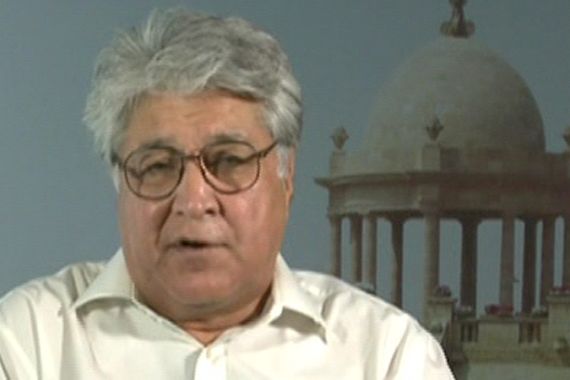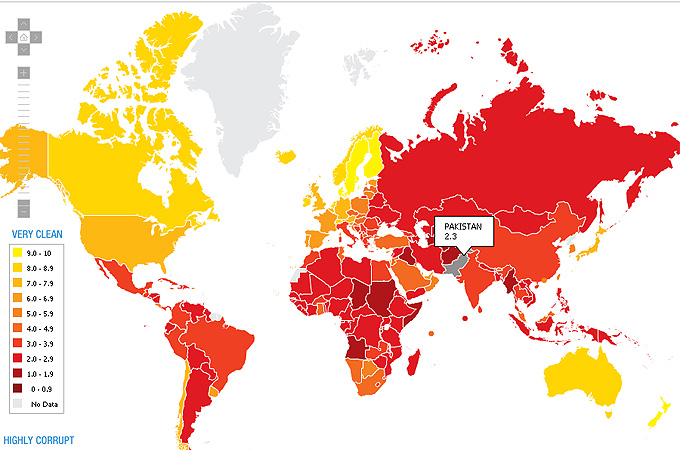Corruption monitor upsets Pakistan
Transparency International might stop working in Pakistan, where the local chairman says he has received death threats.

 |
| Transparency International’s 2010 index gave Pakistan 2.3 out of 10 points, inferring high perception of corruption |
An organisation that monitors transparency or corruption around the world is being forced to stop its efforts to track foreign aid in Pakistan.
Published reports quoted Rehman Malik, Pakistan’s federal minister of the interior, as saying Transparency International (TI) is behaving like a “detective agency” that takes bribes. He threatend to prevent the advocacy group from working in the country, where it registered as a not-for-profit entity in 2000.
Syed Adil Gilani, chairman of TI Pakistan (TIP), told Al Jazeera that he has been receiving death threats from senior officials since a $7.5bn package of US civilian aid was signed over to Pakistan in September and when the US government also struck an agreement with TIP to monitor the aid.
“That was why the whole government started a vilification a campaign against TI Pakistan, TI and myself,” said Gilani, who declined to name those who had threatened to kill him.
Despite pointing out that TI does not investigate anyone – it simply operates a hotline, taking in complaints and passing them along to the appropriate official agency – the threats persist.
He said a person told him,”This is a bad place. You are living in Karachi where the target killing is going on, so be careful and try to not harm the system and try to stop what you’re doing.”
Gilani also said he saw “no sense” in reporting the threats to the police because “police and everybody belong to the same group”.
If Pakistan succeeds in tossing TI out, it would make for an unusual case as Gilani said that to his knowledge no country had ever driven the monitoring group out, “as national chapters are required to legally register under the country’s law”.
Uphill battle
On its website, TI has a statement calling the charges against it “innuendo”.
“The alleged threats published in national media came just weeks after the release of the TI Corruption Perceptions Index 2010, which scores Pakistan with 2.3 out of 10 points, inferring that corruption is perceived to be very high in the country,” says the statement.
Pakistan’s poor rating on the index led to anger, and by October 27, Qamar Zaman Kaira, Pakistan’s federal minister for information and broadcasting, announced that the government had issued a notice to TI, accusing it of issuing a misleading report on Pakistan.
Gilani, though, is quick to point out that following the release of the 2009 index, “the government of Pakistan’s reaction was very positive … However, when CPI 2010 was released on 26 October 2010, the government of Pakistan reaction has taken 180 degree turn.”
A week after the release of the latest index, which indicated that Pakistan had slipped five spots down the scale, the provincial Sindh legislature adopted a resolution against the report, equating it with an act of defamation.
But the root of the issue goes back to the TIP’s agreement with the US to run a corruption hotline (the contract is worth $3m over five years), and since then Pakistan’s government has made clear its dislike of TI’s operations.
On October 30, prior to the release of the 2010 corruption perception index, Asian News International reported that the US had decided to strike an agreement with TIP to monitor the $7.5bn aid package “despite the Pakistan government’s objections”.
If Pakistan’s objections fell upon deaf ears, so have TIP’s appeals.
The organisation has written letters urging the guarantee of rule of law and the right to operate in Pakistan to both Asif Ali Zardari, the country’s president, and Iftikhar Muhammad Chaudhry, its supreme court chief justice.
Gilani said that neither letter has received a response.